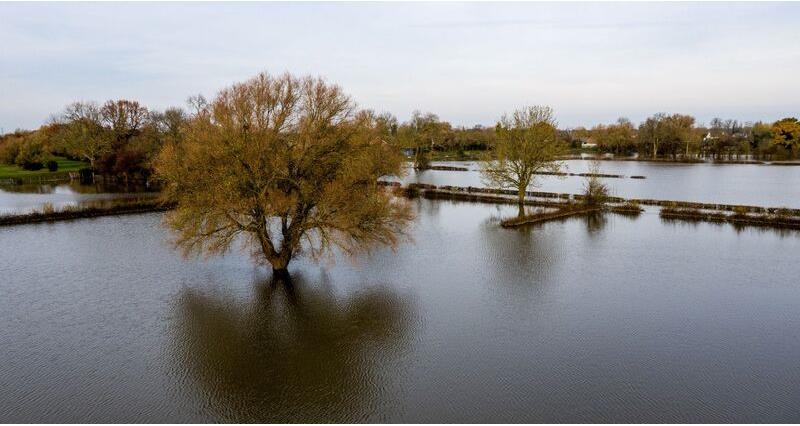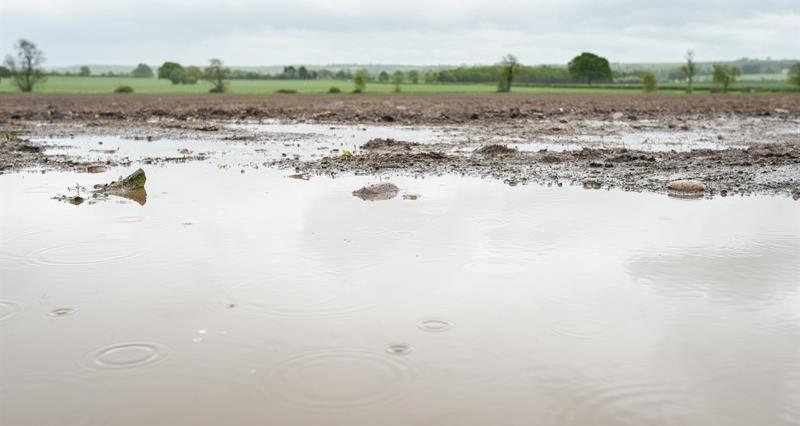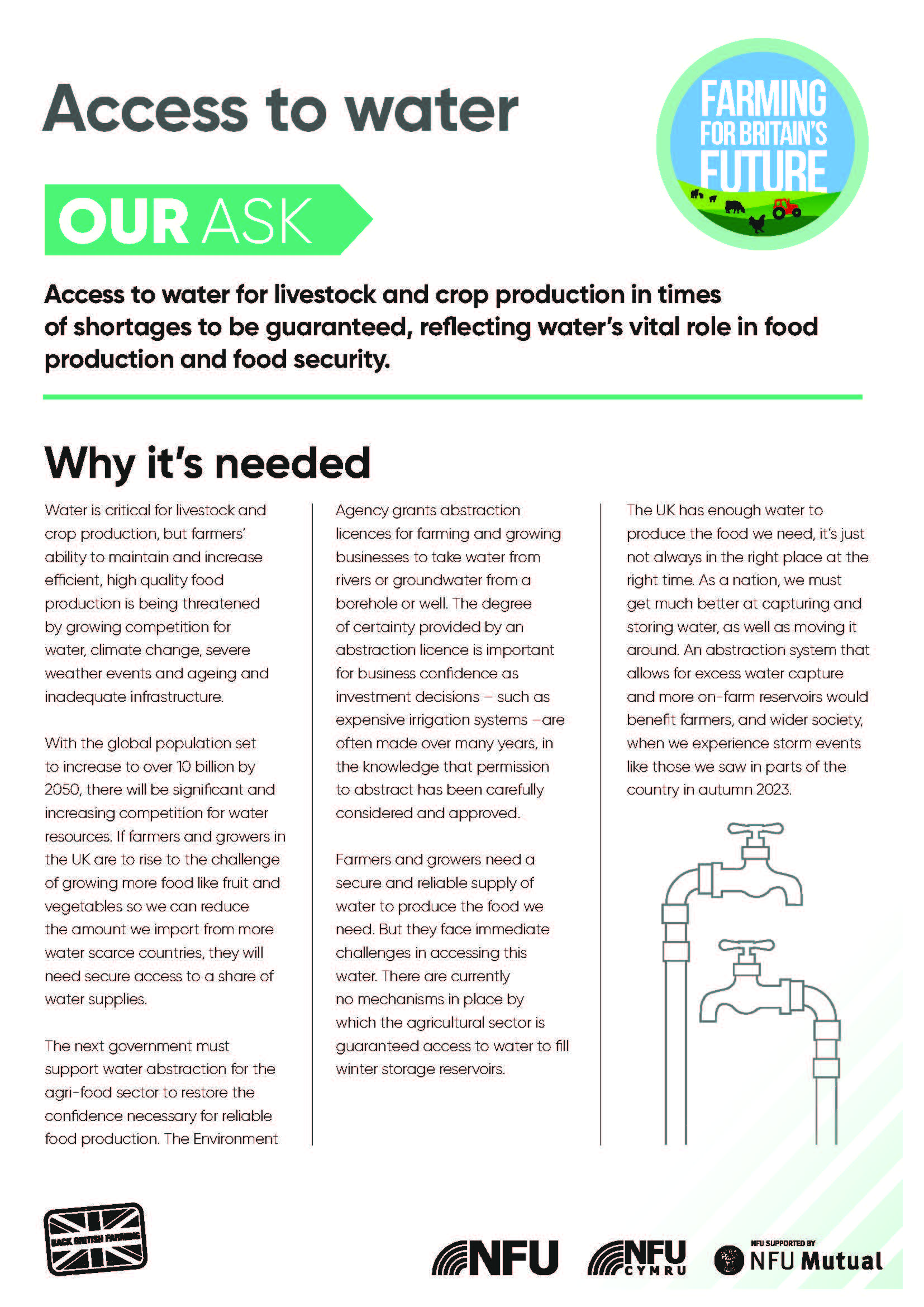At the event, Zoe Moore, NFU Environment Policy Adviser, outlined the multifaceted challenges faced by farmers and rural communities, along with critical next steps for bolstering resilience.
Storm losses
In a challenging winter marked by successive winter storms, including Babet and Henk, farmers have endured significant losses. Thousands of acres of agricultural land have been submerged, leading to damage to crops, livestock, and infrastructure.
The inability to secure insurance coverage for many of these losses exacerbates the financial strain on farmers, leaving them grappling with uncertainty and mounting debts.
Essential next steps
Zoe highlighted three pivotal next steps essential for enhancing agricultural resilience to flooding:
- Recognition of the importance of maintenance.
- Re-evaluation of funding allocation.
- Fair compensation for flood storage.
The importance of maintenance
Zoe emphasised the critical significance of maintaining existing flood risk infrastructure alongside the implementation of new capital projects.
Neglecting routine maintenance not only compromises the integrity of watercourses and flood defences but also impedes recovery efforts in the aftermath of flooding events.
Despite the vital role maintenance plays in safeguarding rural communities, the Environment Agency faces a deficit in maintenance spending, necessitating urgent investment and proactive upkeep strategies.
Zoe cited alarming statistics revealing the Environment Agency's maintenance budget deficit of £34 million for the 2022-2023 period, with projections indicating a continued downward trend.
Increased investment needed
This deficit highlights the pressing need for increased investment in maintenance to pre-emptively address vulnerabilities and strengthen flood defences.
The recent National Audit Office report on resilience to flooding and the Public Accounts Committee's flood defences inquiry echoed these concerns, recommending a reallocation of underspent capital funding towards maintenance.
Acknowledging the feasibility of this approach, the Treasury's endorsement holds promise for bridging the maintenance funding gap and strengthening flood resilience across rural landscapes.
New funding model required
The current framework for allocating flood defence funding disproportionately favours urban areas, leaving rural communities vulnerable to the effects of flooding.
Zoe advocated for a funding model that recognises the invaluable contributions of agriculture and accounts for the broader implications of rural flooding on critical infrastructure, food security and environmental sustainability.
Inherent disparities
She highlighted the inherent disparities in the current funding allocation system, which prioritises projects benefiting densely populated urban centres while overlooking the unique challenges faced by rural communities.
The sole focus on property numbers in funding allocations exacerbates the vulnerability of rural areas to flooding and coastal erosion.
To rectify this imbalance, she called for a more equitable distribution of funding that acknowledges the multifaceted contributions of rural landscapes to the nation's economy, environment, and societal well-being.
Rewarding flood storage services
Central to the resilience-building efforts is the equitable recognition and payment of farmers for their role in providing essential flood storage services.
While farmers stand ready to assist in mitigating the risks of extreme weather events, the absence of fair payment mechanisms places undue financial burdens on agricultural communities.
Zoe emphasised the need for mutually beneficial agreements that fairly reward farmers for the vital flood storage services they provide.
Transparency and streamlining
By establishing transparent payment frameworks and ensuring proactive engagement with farmers, policymakers can incentivise participation in flood mitigation efforts while alleviating financial pressures on agricultural businesses.
Furthermore, she highlighted the imperative of streamlining the process for negotiating flood agreements, citing the complex nature of the current system as a barrier to effective collaboration between farmers and government agencies.
Actions needed
In conclusion, Zoe highlighted the steps the NFU would like to see:
- Recognition of the importance of maintenance – and more investment in this.
- A review of the way flood defence funding is allocated.
- A fair payment for flood storage as a public good that farmers deliver.
See our manifesto asks
Our manifesto
Our general election manifesto – Farming for Britain's Future – outlines our key asks of the next government to ensure farmers and growers can continue to deliver for the environment, economy and local communities while producing more of the great British food we all enjoy.


